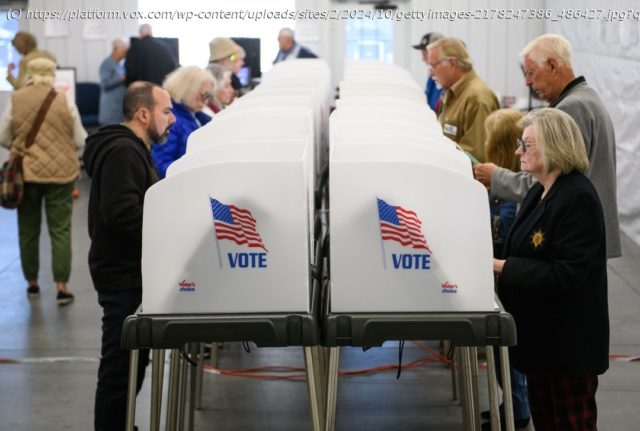Will storm damage depress turnout in a key battleground state?
The Today, Explained podcast is taking a deep dive into the major themes of the 2024 election through the lens of seven battleground states. We’ve heard from voters in Georgia, Pennsylvania, Arizona, and Wisconsin so far; this week we turn to North Carolina, where a storm last month devastated the state — and some of its election infrastructure.
Officials in North Carolina are preparing for an election like no other in the wake of Hurricane Helene. The storm scrambled North Carolinians’ voting infrastructure — washing away absentee ballots, disrupting mail service, and destroying polling locations — and could impact what Election Day looks like in two weeks.
The state is expected to be close — former President Donald Trump won by just 1.3 percentage points in 2020, and current polling averages suggest an even tighter race this year — and all eyes are on the mountains, which received the brunt of the hurricane’s impact last month.
While some parts of life are getting back to normal after Hurricane Helene swept through last month — power returning, internet service restored — many people in the west of the state are still without potable water in their homes.
With so many people displaced or managing repairs, experts have raised concerns about depressed voter turnout.
“The question is going to be: If you’re having to avoid swallowing water while you shower, how important is voting going to be to you?” Steve Harrison, a political reporter at NPR affiliate station WFAE, told Today, Explained host Sean Rameswaram.
In an effort to ensure the election proceeds as close to normally as possible, local election officials have been allowed to move polling locations and adjust hours. The state has also updated rules for absentee voters, allowing them to return their completed ballots to counties other than their home county, as previously required — though the state stopped short of re-instituting a three-day grace period for ballots to be returned for counting.






